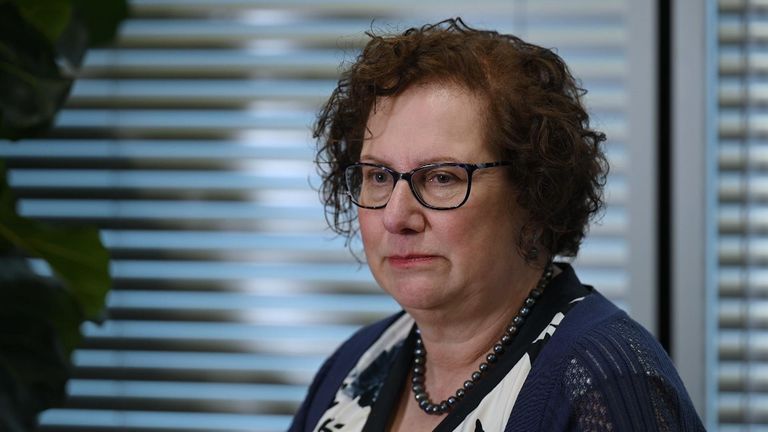Puberty blockers for under-18s to be banned indefinitely
Puberty blockers for under-18s with gender dysphoria will be banned indefinitely in the UK after experts warned of an “unacceptable safety risk”.
The government said that following recommendations from independent medical professionals, existing emergency measures banning the sale and supply of the drugs outside of clinical trials will stay in place.
Politics Latest: Keir Starmer and Kemi Badenoch clash over immigration at PMQs
Health and Social Care Secretary Wes Streeting said there was a need to “act with caution” and “follow the expert advice” in caring for this “vulnerable group of young people”.
He said the Commission on Human Medicines (CHM) has found that the current prescribing and care pathway for gender dysphoria “presents an unacceptable safety risk for children and young people”.
He also referenced the findings of the Cass Review, which “raised safety concerns around the lack of evidence for these medical treatments”.
“We need to act with caution and care when it comes to this vulnerable group of young people, and follow the expert advice,” Mr Streeting said.
Mr Streeting added that the government is working with NHS England to set up new gender identity services for young people, following the closure of the much-scrutinised Tavistock centre, and would be setting up a clinical trial into the use of puberty blockers next year, “to establish a clear evidence base for the use of this medicine”.
He insisted the government’s decision was based on “evidence” and not “political pressure”, as he acknowledged that many young transgender people will be affected by the ban.
In a direct message to them, Mr Streeting spoke of his own struggles coming out as gay.
He said: “I know it’s not easy being a trans kid in our country today, the trans community is at the wrong end of all of the statistics for mental ill health, self-harm and suicide.
“I can’t pretend to know what that’s like, but I do know what it’s like to feel you have to bury a secret about yourself, to be afraid of who you are, to be bullied for it, and then to experience the liberating experience of coming out.
“I know it won’t feel like it, based on the decisions I’m taking today, but I really do care about this and so does this government. I am determined to improve the quality of care and access to healthcare for all trans people.”
‘Unacceptable safety risk’
The CHM’s advice said that there is “currently an unacceptable safety risk in the continued prescription of puberty blockers to children”.
The commission recommended indefinite restrictions while work is done to ensure the safety of young people.
Puberty blockers pause the physical changes of puberty such as breast development or facial hair.
The NHS announced in March that children would no longer be prescribed them, after commissioning an independent review of gender identity services for children under 18 in 2020.
Read More:
Labour vows to ‘simplify tortuous and degrading’ gender transition process
Transgender girl, eight, has sleepless nights about growing up as a boy
The review followed a sharp rise in referrals to the Gender Identity Development Service (GIDS) – a specialised service for young people who experience difficulties in the development of their gender identity.
The review was led by Dr Hilary Cass, who concluded in a final report in April this year that there was “remarkably weak evidence” to support gender treatments for children.
Her report promoted the then Conservative government to introduce a ban on puberty blockers for under-18s using emergency legislation, preventing the prescription of the medication from European or private prescribers and restricting NHS provision to within clinical trials.
A challenge to that ruling, brought by campaigners who said they were concerned for the welfare of young trans people, failed in July when the high court ruled the ban was lawful.
While health is a devolved matter, the indefinite ban announced on Wednesday applies across the UK, the DHSC said.

